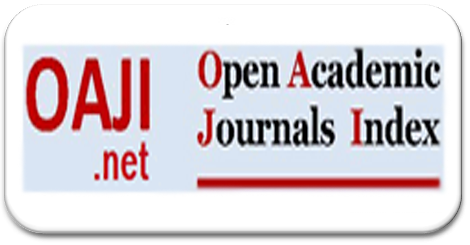Ismail Raji Al-Faruqi: The Islamization of Sciences and Its Philosophy
Abstract
Islam is a way of life that provides guidance and direction to Muslims in all aspects. However, the separation between religion and secularism has become a reality, leading to various issues. The lack of knowledge about Islam and illiteracy has made the faith of Muslims emotional and intolerant in religious matters. Conversely, young graduates from secular institutions possess deep scientific knowledge but lack understanding of religious issues, creating tension between modern and religious groups, which ultimately causes social, political, and economic instability. This article aims to analyze Al Faruqi's ideas and thoughts on the Islamization of Knowledge and how this approach can address the conflict between contemporary science and Islamic principles, as well as strengthen the unity and development of the Muslim community. This research employs a qualitative method with a textual analysis approach to Al Faruqi's works. The primary data sources consist of Al Faruqi's writings on the Islamization of Knowledge and secondary literature discussing his thoughts. The data analysis technique involves examining the arguments put forth by Al Faruqi and assessing their relevance and application in the modern context. The research finds that Al Faruqi presents several important arguments, one of which is that contemporary sciences lack objectivity and are not entirely scientific because humans cannot be neutral or value-free. He argues that Allah created humans with the gift of Al’aql (mind and reasoning) and senses to influence and be influenced. Only when these sciences adopt divine principles and an ummatic approach can they be applied universally. Al Faruqi's approach to the Islamization of Knowledge offers a solution to address the conflict between modern and religious groups by emphasizing the integration of scientific knowledge with Islamic principles. This not only enhances understanding and tolerance within the Muslim community but also has the potential to strengthen the social, political, and economic stability of Muslims as a whole.
Keywords
Full Text:
PDFReferences
Al-Faruqi, I.R. (1984). Islamization of Knowledge General Principle and Work. (editor. A. Mahyuddin). Pustaka
Al-Faruqi, Islamization of Knowledge: General Principles and Workplan, Herndon, VA, IIIT.
Al Faruqi (1981). “Islamization the Social Science,” in Social and Natural Sciences, ed. Al Faruqi and A.Q. Naseef, Jeddah: Hodder & Stougthon, King Abdul Azis University
IT, Suraiya, Syamsul Rizal, and Zaenuddin Hudi Prasojo (2019). Sufism and Religious Practice in modern Lifestyle. Surabaya: Jurnal Religio, Study agama agama
John L. Esposito, ed. (1983). Voices of Resurgent Islam, New York: Oxford University Press
Qamar, M. (2005). Epistemology Pendidikan Islam dari Metode Rasional hingga Metode Kritik. Erlangga
Shaykh Taha Jabir Al wani (2005). The construction of the Muslim Mind: The Islamization of Knowledge. IIIT
DOI: http://dx.doi.org/10.22373/substantia.v26i1.23423
Refbacks
- There are currently no refbacks.
Copyright (c) 2024 Suraiya IT

This work is licensed under a Creative Commons Attribution-NonCommercial 4.0 International License.
SUBSTANTIA: JURNAL ILMU-ILMU USHULUDDIN
DITERBIKAN OLEH:
FAKULTAS USHULUDDIN DAN FILSAFAT
UNIVERSITAS ISLAM NEGERI (UIN) AR-RANIRY BANDA ACEH, ACEH INDONESIA
ALAMAT REDAKSI:
Gedung Fakultas Ushuluddin Lantai II, Fakultas Ushuluddin, UIN Ar-Raniry, Jln. Lingkar Kampus, Kopelma Darussalam Banda Aceh, Aceh 23111.Telp. (0651)7551295. eMail: substantia.adm@gmail.com

This work is licensed under a Creative Commons Attribution-NonCommercial 4.0 International License.


.png)




















